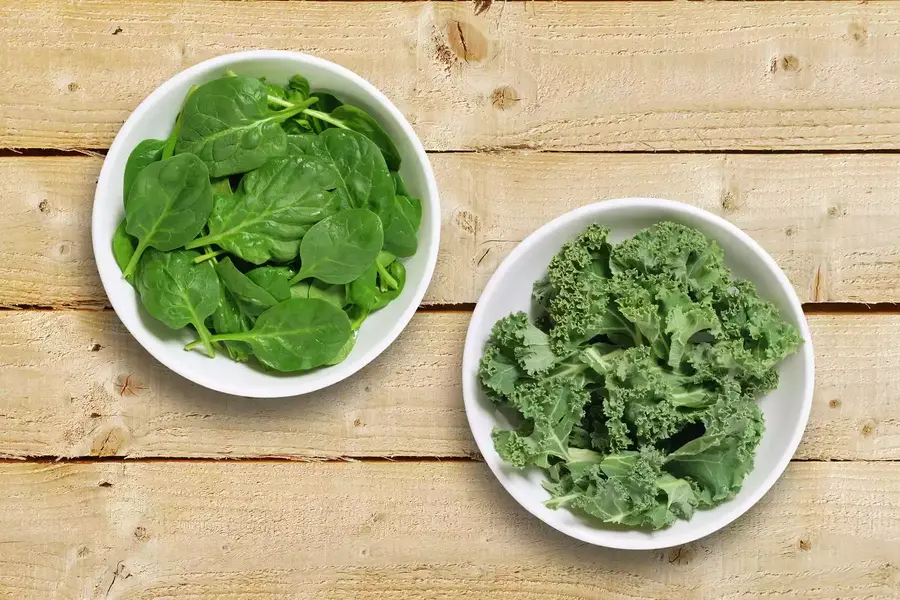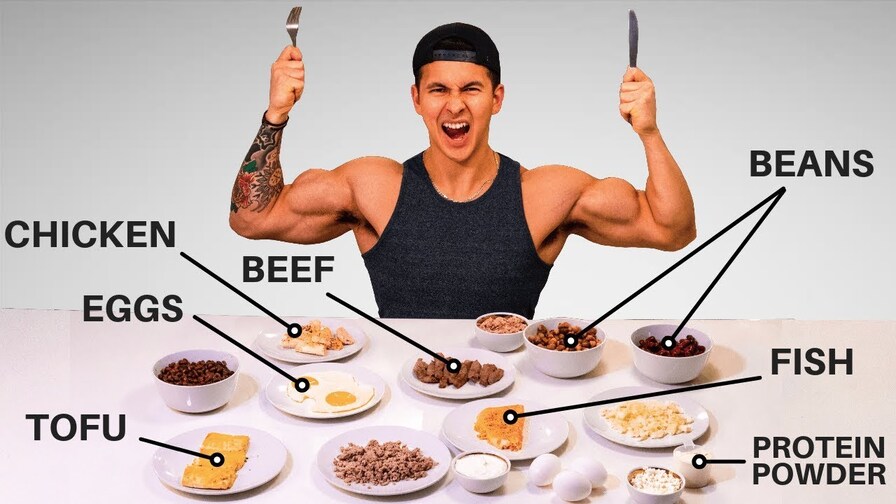The Wholesome White: Unveiling the Potential of Egg Whites
Egg whites, the clear liquid surrounding the yolk, are a popular choice for those seeking a protein boost. While both egg whites and yolks offer valuable nutrients, egg whites shine for their high protein content. This makes them a versatile protein source you can enjoy throughout the day.
However, it’s important to acknowledge the limitations of current research on egg whites. Most studies involve small groups, and further investigation is needed to solidify the potential health benefits.
In this article, we’ll delve into the research available, comparing egg whites to whole eggs, exploring potential risks, and offering practical tips for incorporating them into your diet. So, let’s crack open the science behind these whites and see what they have to offer!
Building Muscle with Egg Whites?
Research suggests egg whites may play a role in muscle growth. A study involving women over 55 showed that daily consumption of fermented egg whites (containing 8 grams of protein) alongside regular exercise led to increased muscle mass in the arms and legs, along with improved strength for activities like knee extensions.
However, it’s important to consider that some studies suggest whole eggs, containing both whites and yolks (which also have protein), might be even more effective for building muscle mass and strength compared to egg whites alone.
In short: While egg whites offer a protein boost, whole eggs might be a superior choice for muscle building due to their additional protein content from the yolks.
Egg Whites and Belly Fat: Promising Findings
Visceral fat, the fat stored around your organs, can pose health risks. Interestingly, research suggests egg whites may offer benefits in this area.
A study involving 37 overweight adults compared the effects of daily fermented egg whites (containing 8 grams of protein) to a control group for 12 weeks. Those consuming the fermented egg whites experienced a significant reduction in visceral fat compared to their starting measurements and the control group. Additionally, the ratio of visceral fat to subcutaneous fat (fat stored beneath the skin) improved in the egg white group.
These findings are promising, but more research is needed to confirm the long-term effects and optimal dosage of egg whites for visceral fat reduction.
Egg Whites and Cholesterol: Lowering the Numbers?
For those with mildly elevated cholesterol, egg whites might offer a potential benefit. A 2017 study involving men with this condition divided participants into three groups, each consuming different amounts of fermented egg whites (4 grams, 6 grams, or 8 grams) daily for eight weeks.
The group consuming 8 grams of egg whites daily saw a significant reduction in total cholesterol compared to their starting point, with a more noticeable decrease than the 4-gram group. Additionally, this group experienced a significant drop in “bad” LDL cholesterol compared to both their baseline and the 4-gram group.
These findings suggest that daily consumption of 8 grams of egg white protein may help lower LDL and overall cholesterol levels in men with mild cholesterol issues, potentially reducing the risk of heart disease. However, it’s important to note that more research is needed to confirm these results and explore the effects on women and overall heart health.
Combating Mental Fatigue for Athletes? Exploring Egg Whites
Athletes often battle mental fatigue alongside physical exertion. Interestingly, research suggests egg whites might offer some support.
A study involving student-athletes investigated the effects of an egg white protein supplement on their antioxidant capacity and mental fatigue. Antioxidants are known to help reduce fatigue after exercise.
The study was conducted in two parts. In the first part with 19 participants, those who consumed the egg white supplement displayed a significant increase in antioxidant capacity compared to a placebo group.
The second part of the study involved 74 participants and focused directly on mental fatigue. Here, two weeks of egg white supplementation significantly reduced mental fatigue compared to the placebo group.
These findings are promising, but more research is needed to understand the long-term effects and optimal dosage of egg whites for managing mental fatigue in athletes.
Cracking Open the Nutrition of Egg Whites: A Look at Their Protein Powerhouse Status
Egg whites are a popular choice for those seeking a lean protein source. Let’s delve into their nutritional profile:
- Low in Calories and Fat: One large egg white packs just 17.7 calories and contains almost no fat, making it a guilt-free protein addition to your meals.
- Protein Powerhouse: Boasting 3.6 grams of protein per large egg white, these whites offer a complete protein source. This means they contain all nine essential amino acids your body can’t produce on its own and needs for various functions. An amino acid score of 100 reflects this complete protein profile.
- Limited Carbs: Egg whites are very low in carbohydrates, making them a suitable choice for low-carb diets
- Selenium Superstar: Egg whites are a surprising source of selenium, a mineral crucial for reproduction, thyroid function, DNA production, and protecting your body from infection and cellular damage. One large egg white contains 11% of your daily recommended selenium intake.
- .Vitamin B2 Bonanza: Egg whites are also a good source of riboflavin (vitamin B2), a vitamin essential for proper growth, development, and converting food into usable energy.
While egg whites are low in most vitamins and minerals, their high protein content, complete amino acid profile, and presence of essential nutrients like selenium and riboflavin make them a valuable dietary addition.
The Great Egg Debate: Egg Whites vs. Whole Eggs
Egg whites have become synonymous with lean protein, but how do they stack up against the whole egg? Let’s break down the battle:
Egg Whites: Protein Powerhouse, Limited Nutrients:
- Pros: Egg whites boast impressive protein content (3.6 grams per large egg white) with a perfect amino acid score, making them a complete protein source. They’re also very low in calories and fat.
- Cons: Aside from protein, egg whites offer minimal vitamins and minerals.
Whole Eggs: A Nutritional Powerhouse:
- Pros: Whole eggs offer a more complete nutritional profile. They contain the protein found in egg whites (around 6 grams per large egg) along with healthy fats, vitamins, and minerals. Notably, whole eggs are a good source of:
- Selenium: Important for reproduction, thyroid function, and DNA production.
- Choline: Essential for brain and nervous system function, supporting memory, mood, and muscle control.
- Vitamin A: Crucial for proper growth, development, immune function, and eye health.
- Lutein and Zeaxanthin: Carotenoids that help protect against eye diseases.
- Cons: Whole eggs contain more calories and fat than egg whites.
The Verdict: It Depends on Your Needs:
Choosing between egg whites and whole eggs depends on your dietary goals.
- Prioritizing Protein and Low Calories: If you’re focused on increasing protein intake while keeping calories and fat low, egg whites are a great option.
- Seeking a Well-Rounded Nutritional Profile: If you want a complete nutritional package with protein, healthy fats, vitamins, and minerals, whole eggs are the way to go.
Remember:
- Balance is key! You can incorporate both egg whites and whole eggs into your diet.
- Consult a doctor or registered dietitian for personalized advice based on your specific needs and health conditions.
Cracking the Code on Egg White Risks: Safety Considerations
While eggs are a nutritious staple for many, there are a few potential downsides to be aware of, especially when it comes to egg whites.
Egg Allergies:
- Some people develop an allergy to the proteins found in egg whites (and yolks). Symptoms can range from mild rashes and stomach aches to severe reactions. If you suspect an egg allergy, consult an allergy specialist for diagnosis and guidance.
Salmonella Concerns:
- Salmonella bacteria, present in some raw or undercooked eggs, can cause food poisoning with symptoms like cramps, diarrhea, and fever.
- To minimize this risk:
- Buy eggs from reputable sources and inspect them for cracks before purchase. Discard any cracked eggs.
- Refrigerate eggs at 40 degrees Fahrenheit (4 degrees Celsius) or colder.
- Thoroughly cook egg whites until they are firm (not runny) to eliminate bacteria.
Biotin Deficiency (Rare):
- Consuming large amounts of raw egg whites can lead to biotin deficiency, also known as “egg white injury.” Raw egg whites contain avidin, a protein that can bind to biotin (vitamin B7) in the gut and hinder its absorption.
- This is a rare occurrence and typically only problematic with excessive consumption of raw egg whites over a prolonged period. Cooking egg whites destroys avidin, eliminating this risk.
Beyond the Shell: Creative Ways to Enjoy Egg Whites
Egg whites offer a versatile protein boost, but separating yolks can be messy. Here’s the good news: you can find convenient alternatives like pre-packaged liquid egg whites, dried egg whites (which require rehydration with water), and even egg white powder.
Now, let’s get cooking! Here are some delicious ideas to incorporate egg whites into your meals:
- Scrambled Savory: Whip up a classic scramble with chopped bell peppers, onions, or your favorite veggies for a protein-packed breakfast.
- Muffin Mania: Bake egg white muffins loaded with broccoli, cheese, or other desired ingredients – a perfect grab-and-go breakfast or healthy snack.
- Salad Surprise: Elevate your salad by adding cooked egg whites for extra protein and texture. They pair well with a variety of ingredients.
- Open-Faced Delight: Spread mashed avocado on toast or a rice cake, top it with sliced hard-boiled egg whites, a sprinkle of your favorite seasoning, and a dash of hot sauce for a satisfying and flavorful snack.
- Southwestern Scramble: Fill a whole wheat tortilla with scrambled egg whites, diced tomatoes, onions, and a sprinkle of cheese for a protein-rich breakfast or light lunch.
- Light and Fluffy Pancakes: Substitute whole eggs for egg whites in your favorite pancake recipe for a lower-calorie, high-protein breakfast option.
These are just a few ideas to get you started. With a little creativity, you can enjoy the protein power of egg whites in countless delicious ways.
The Verdict on Egg Whites: A Protein Powerhouse with Considerations
Egg whites have emerged as a popular choice for their impressive protein content. Here’s a quick recap of the key points:
Potential Benefits:
- Increased muscle mass and strength (more research needed)
- Reduced cholesterol levels (especially for those with mildly high cholesterol)
- Reduced mental fatigue in athletes (more research needed)
Important Considerations:
- Salmonella risk: Minimize this by buying eggs from reputable sources, refrigerating them properly, and cooking them thoroughly.
- Egg allergies: If you suspect an egg allergy, consult a doctor.
- Limited nutrients: While egg whites are great for protein, whole eggs offer a broader range of nutrients.
The Bottom Line:
Egg whites can be a valuable addition to your diet, especially if you’re focused on increasing protein intake while keeping calories and fat low. However, whole eggs offer a more complete nutritional profile. The best choice for you depends on your individual needs and dietary goals.
Remember:
- Always prioritize safe food handling practices.
- Consult a healthcare professional for personalized advice if you have concerns about allergies or biotin deficiency.
- With a little creativity, you can enjoy the protein power of egg whites in various delicious ways!




